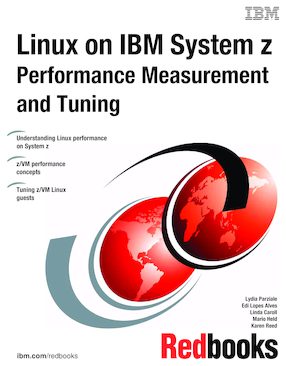Abstract
This IBM® Redbooks® publication discusses performance measurement and tuning for Linux for System z®. It is intended to help system administrators responsible for deploying Linux for System z understand the factors that influence system performance when running Linux as a z/VM® guest.
This book starts by reviewing some of the basics involved in a well-running Linux for System z system. An overview of some of the monitoring tools that are available and some that were used throughout this book is also provided.
Additionally, performance measurement and tuning at both the z/VM and the Linux level is considered. Some tuning recommendations are offered in this book as well. Measurements are provided to help illustrate what effect tuning controls have on overall system performance.
The system used in the writing of this book is IBM System z10® running z/VM Version 6.1 RSU 1003 in an LPAR. The Linux distribution used is SUSE Linux Enterprise Server 11 SP1. The examples in this book use the Linux kernel as shipped by the distributor.
The z10 is configured for:
- Main storage: 6 GB
- Expanded storage: 2 GB
- Minidisk cache (MDC): 250 MB
- Total LPARs: 45
- Processors: Four shared central processors (CPs) defined as an uncapped logical partition (LPAR)
The direct access storage devices (DASD) used in producing this IBM Redbooks publication are 2105 Enterprise Storage Server® (Shark) storage units.
The intent of this book is to provide guidance on measuring and optimizing performance using an existing zSeries® configuration. The examples are intended to demonstrate how to make effective use of your zSeries investment. The workloads used are chosen to exercise a specific subsystem. Any measurements provided should not be construed as benchmarks.
Table of Contents
Chapter 1. Virtualization and server consolidation
Chapter 2. Tuning basics on System z
Chapter 3. z/VM and Linux monitoring tools
Chapter 4. z/VM storage concepts
Chapter 5. Linux virtual memory concepts
Chapter 6. Tuning memory for z/VM Linux guests
Chapter 7. Linux swapping
Chapter 8. CPU resources, LPARs, and the z/VM scheduler
Chapter 9. Tuning processor performance for z/VM Linux guests
Chapter 10. Tuning disk performance
Chapter 11. Network considerations
Appendix A. WebSphere performance benchmark sample workload
Appendix B. WebSphere Studio Workload Simulator
Appendix C. Additional material
